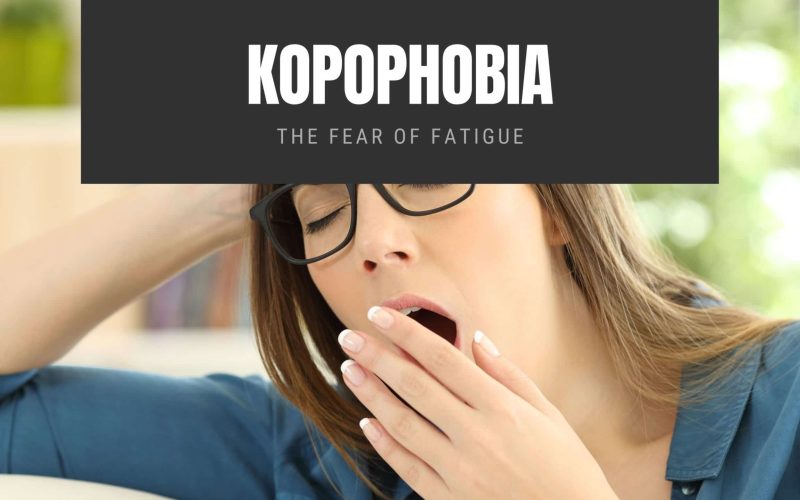Nobody likes to feel fatigued or stressed, but it’s rare to meet someone deeply afraid of such a feeling. In this article, we will discuss Kopophobia.
Kopophobia is defined as the irrational fear of fatigue. A person who suffers from this condition can expect to suffer a very high amount of anxiety when they merely think of fatigue, let alone when they actually experience it.
In fact, the anxiety such people feel may be so intense that they may have to suffer a full-blown panic attack because of it.
Even though such a case of anxiety will not be the case for every single person suffering from kopophobia, there is a high chance that it will occur nonetheless.
Someone who is experiencing a full-blown panic attack due to their kopophobia can expect to deal with an increased heart rate, higher blood pressure, an increased rate of excessive sweating, breathing, trembling, and muscle tension, amongst many other symptoms.
Although it is not everyone who will have panic attacks, it is a symptom of kopophobia that can occur in those who have severe symptoms.
People who have kopophobia commonly find themselves doing all they can to avoid that which they are afraid of.
Kopophobic people may take avoidance to the extreme by making sure that they are not exposed to fatigue of any kind.
For instance, someone with this condition may not agree to engage in any work or strenuous activity to avoid fatigue.
Excessive worry about this kind of irrational thinking is most likely one of the primary causes of mental anguish.
Although someone who has this condition may have to actively avoid the things they fear in an attempt to reduce their chances of dealing with immediate anxiety, actions like this may also worsen their symptoms of kopophobia eventually because they would also begin to justify their fear by actively avoiding it.
Symptoms of Kopophobia
Just like virtually every phobia that exists, a person who has kopophobia can expect to have anxiety as the most apparent symptom of their condition.
Also, their anxiety may become so extreme that they begin to suffer full-blown panic attacks because of it. Depending on how severe their panic attack becomes, people with Kopophobia may even have to be hospitalized.
Nevertheless, because the severity varies from person to person, whether a person is hospitalized will also greatly depend on several factors.
Furthermore, a person who deals with kopophobia may go through painstaking efforts to see to it avoid stressful situations, which can affect how they work, study, or even behave around people who work hard enough to become fatigued possibly.
Below are some other physical symptoms of kopophobia:
- Constantly avoiding strenuous activities
- May experience panic attacks
- Anxiety when thinking of fatigue
- Muscle tension, shakiness, and sweating
- Unable to cope with their anxiety
Causes of Kopophobia
Just like a couple of other phobias out there, kopophobia has no specific cause that has been identified and generally accepted.
Nevertheless, it is assumed that genetics and a person’s environment may play significant roles in causing this condition.
For instance, if an individual has a family history of mental conditions, especially of specific phobias and anxiety disorders, then they may have a higher chance of dealing with kopophobia.
This may also be a result of them having a genetic predisposition to suffering mental illness in general.
Kopophobia Treatments
In the same way, there are no specific causes of kopophobia; sadly, there are also no treatments specifically designed for the condition.
Nevertheless, kopophobia can be managed in several ways, and can be treated through cognitive behavioral therapy (CBT), exposure therapy, and some psychiatric medications, among others.
When Do I See a Doctor?
If you begin to live in constant fear of getting fatigued for more than six months, it is time to see a psychologist or a doctor who will walk with you to understand what you are dealing with and manage it.
A mental health professional may have you take a few tests or answer some questions for you to be correctly diagnosed.
After a diagnosis, the next step may be to help you understand why your fears are irrational and help you understand how to deal with your concerns and live a healthy life.








